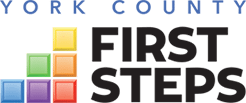For infants, toddlers, and preschoolers, the quality of care they receive is crucial to their healthy development and eventual readiness for school. Child care providers strive to provide that type of quality care, but often lack the resources that are commonly available to publicly-funded early childhood programs, such as educational materials, on-site professional development, and other support.

First Steps’ Child Care Quality Enhancement (QE) is intended to produce measurable improvements in the quality of care provided to young children. Participating child care providers must serve a significant percentage of at-risk children and are selected through a competitive process that requires a strong level of commitment to the QE process.
Program Components
- On-site Technical Assistance (TA) at least twice monthly
- Equipment and materials funding
- Integration with locally available training, provided by First Steps and other partners
- Workforce Development
- Coordination with community partners
- Pre/post assessments of the classroom environment and teacher-child interaction, using nationally-recognized observational tools for infant/toddler and preschool settings (ITERS,ECERS,FCCERS)
The Quality Enhancement Program was developed to help child care centers; group and family homes in York County enhance their programs. Two Early Childhood Specialist work with twelve centers over a three year period providing technical assistance, quality childcare training, education, links to other community resources, and continual support services.
In providing technical assistance to the child care programs, we visit each program at least twice per month for at least two or more hours. At the beginning of each year, the director chooses a one classroom for us to work with. We begin by visiting that room, completing an Environmental Rating Scale (ECERS) assessment, so we have a starting point. The teacher and director are then trained in how to use the ECERS, and ask to complete it. This gives the program a tool that they can use for their own self-assessment. We then come together and establish three to five goals that we want to accomplish throughout the year for the classroom. These goals can be something as simple as the classroom needs blocks, or more complex such as helping the teacher work with a child with developmental delays.
We use several techniques to help the teacher meet her goals, like modeling appropriate classroom behavior, providing handouts on a certain topic, or even taking them on field trips to other centers to obtain new ideas for their own classrooms. To assist centers in obtaining materials that the assessment shows are needed, we provide a Quality Enhancement grant that will purchase those materials for the classroom. To detail the progress made by the teacher and in the classroom, the Specialist will complete a final ECERS assessment that will be shared with the center.

